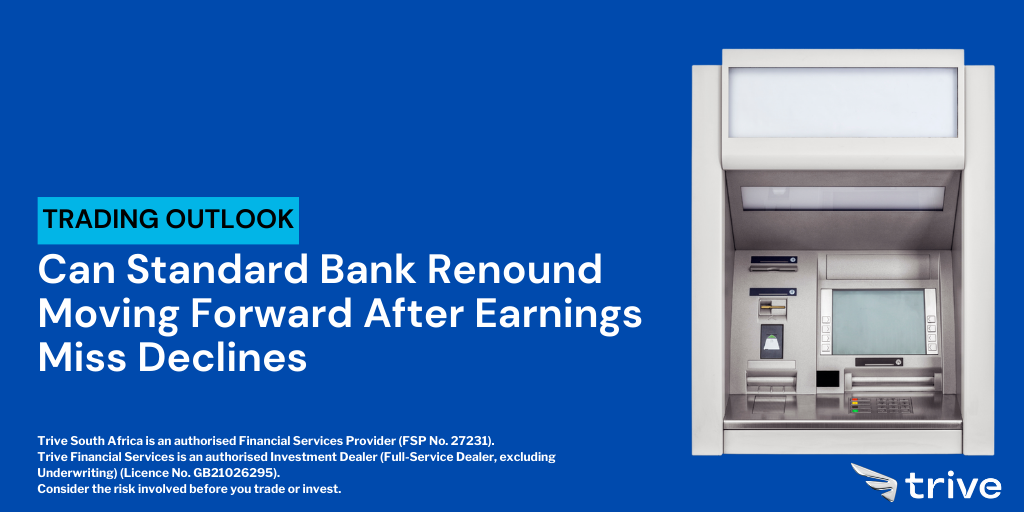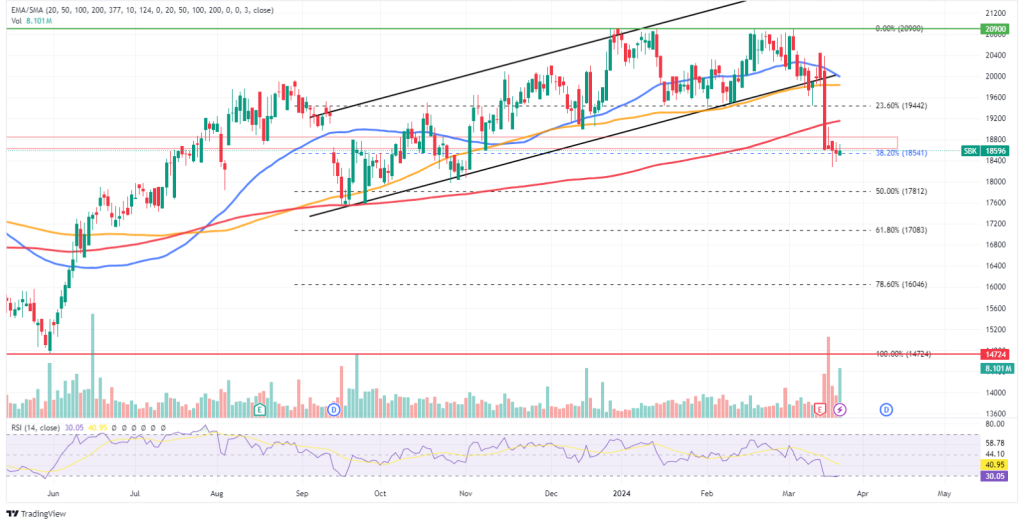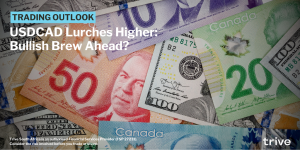
Standard Bank Group Limited (JSE: SBK) is struggling to gain traction after a disappointing earnings report on Thursday. The share price tumbled 6.8%, reflecting weaker-than-expected profits despite a 27% year-on-year jump. This decline comes amidst a challenging economic environment in South Africa, characterised by high inflation and rising interest rates.
While the group boasts a robust and growing African franchise and a successful digital banking transition (2.8 billion digital transactions in FY23), these positive developments were overshadowed by concerns about credit impairments. Credit impairment charges surged by 22% to R16.3 billion, with expectations for them to peak in the first half of 2024. This suggests that client strain, particularly in personal and private banking, is likely to persist in the near term.
Despite the headwinds, Standard Bank remains optimistic about 2024. The group anticipates a more favourable economic landscape with potentially softer inflation and easing interest rates. They project low-to-mid single-digit growth in net interest income and mid-single-digit growth in fees and commissions. The bank’s commitment to sustainable finance (mobilising over R50 billion in 2023) is also a commendable step.
Technical
The technical outlook for Standard Bank is currently uncertain. The share price is trading flat near the 38.20% Fibonacci retracement level (18,541 cents) following a sharp 6.8% decline on Thursday. This decline resulted in the price falling below all three key moving averages [50-SMA (blue line), 100-SMA (orange line), and 200-SMA (red line)], indicating a short-term bearish bias. The downward slope of the 50-SMA reinforces this bearish sentiment.
With the price action finding support at the 38.20% Fibonacci retracement level, a sustained break below this level could expose the 50.00% Fibonacci retracement level (17,812 cents) as the initial area of support. Further downside pressure on significant volume could bring the 61.80% Fibonacci retracement level (17,083 cents) into play.
However, the oversold RSI (30.05) suggests a potential short-term bounce. If the bulls can push the price above the 200-SMA (red line), they could encounter initial resistance at the 23.60% Fibonacci retracement level (19,442 cents). A decisive break above this resistance level on significant volume would open the door for a potential retest of the five-year high of 20,900 cents.

Summary
Standard Bank’s post-earnings price action reflects investor uncertainty. The group’s long-term prospects seem promising, but near-term headwinds persist. Technically, the stock is hovering near a support zone. A break below the 38.20% Fibonacci level could trigger further downside, while a break above the 200-SMA could lead to a short-term rally.
Sources: TradingView, Business Tech, Reuters, MoneyWeb, News24, Bloomberg, Simply Wall Street.
Piece written by Mfanafuthi Mhlongo, Trive Financial Market Analyst
Disclaimer: Trive South Africa (Pty) Ltd (hereinafter referred to as “Trive SA”), with registration number 2005/011130/07, is an authorised Financial Services Provider in terms of the Financial Advisory and Intermediary Services Act, 37 of 2002. Trive SA is authorised and regulated by the South African Financial Sector Conduct Authority (FSCA) and holds FSP number 27231. Trive Financial Services Ltd (hereinafter referred to as “Trive MU”) holds an Investment Dealer (Full-Service Dealer, excluding Underwriting) Licence with licence number GB21026295 pursuant to section 29 of the Securities Act 2005, Rule 4 of the Securities Rules 2007, and the Financial Services Rules 2008. Trive MU is authorized and regulated by the Mauritius Financial Services Commission (FSC) and holds Global Business Licence number GB21026295 under Section 72(6) of the Financial Services Act. Trive SA and Trive MU are collectively known and referred to as “Trive Africa”.
Market and economic conditions are subject to sudden change which may have a material impact on the outcome of financial instruments and may not be suitable for all investors. Trive Africa and its employees assume no liability for any loss or damage (direct, indirect, consequential, or inconsequential) that may be suffered. Please consider the risks involved before you trade or invest. All trades on the Trive Africa platform are subject to the legal terms and conditions to which you agree to be bound. Brand Logos are owned by the respective companies and not by Trive Africa. The use of a company’s brand logo does not represent an endorsement of Trive Africa by the company, nor an endorsement of the company by Trive Africa, nor does it necessarily imply any contractual relationship. Images are for illustrative purposes only and past performance is not necessarily an indication of future performance. No services are offered to stateless persons, persons under the age of 18 years, persons and/or residents of sanctioned countries or any other jurisdiction where the distribution of leveraged instruments is prohibited, and citizens of any state or country where it may be against the law of that country to trade with a South African and/or Mauritius based company and/or where the services are not made available by Trive Africa to hold an account with us. In any case, above all, it is your responsibility to avoid contravening any legislation in the country from where you are at the time.
CFDs and other margin products are complex instruments and come with a high risk of losing money rapidly due to leverage. You should consider whether you understand how these products work and whether you can afford to take the high risk of losing your money. Professional clients can lose more than they deposit. See our full Risk Disclosure and Terms of Business for further details. Some or all of the services and products are not offered to citizens or residents of certain jurisdictions where international sanctions or local regulatory requirements restrict or prohibit them.




